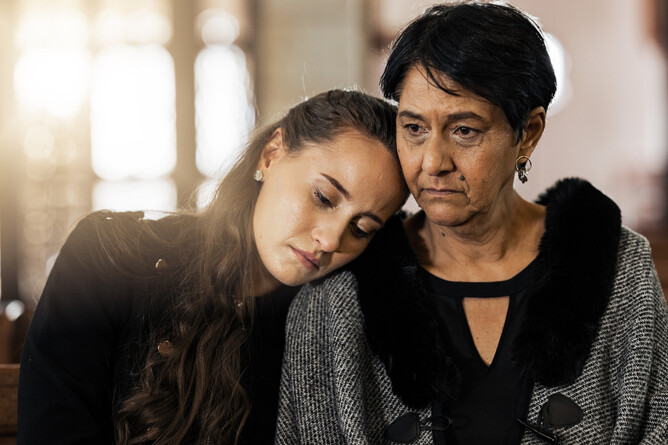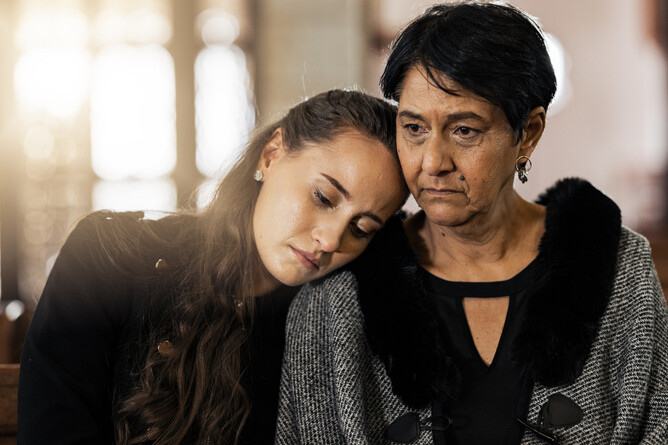Writing a eulogy for your mother is one of the most emotionally challenging tasks most of us will face. The passing of a loved one is difficult, but to try to put their life into words can leave the best of us speechless.
While finding the right words can feel overwhelming, the process of writing a eulogy can be incredibly healing. Taking the time to reflect on the life of someone who meant the world to you, and to share her story with those who loved her, is a wonderful way to honour the woman she was.
If you’re preparing to write a eulogy for your mother, here are some tips to get you started.
Start Simple
When you sit down to write a eulogy for your mother, you may be hit with a wave of memories and ideas of what you’d like to include. By all means, jot these down for later, but first, begin with the basics. Introduce who your mother was and the key aspects of her life, such as:
Her full name (and any nicknames)
Date of birth and date of passing
A brief overview of her life (childhood, education, career, etc.)
You could also choose to mention close family members, living or deceased, and the impact your mum had on their lives. For example:
My mother, Mary Smith, was born Mary Dale on January 12, 1955, and left us too soon on September 20, 2024. She was a devoted wife, a loving mother, and an incredible friend to many.
It’s best to keep this initial introduction fairly short, as you’ll have time to expand on her life and character later in the eulogy.
Share Personal Stories and Memories
What makes a eulogy personal is the stories, anecdotes and memories you choose to share. Whether you want to infuse humour into the eulogy or keep it solemn is entirely up to you. As always, there is no right or wrong. Think about including any moments that defined your relationship with your mother or examples of how she impacted the lives of others. You might want to consider:
What was your mother passionate about?
What qualities made her special?
Are there specific stories or experiences that capture who she was?
Remember, everyone listening to the eulogy will have their own memories of your mother, and will likely have experienced a different part of her personality. What has the most impact in a eulogy is hearing about a side of the deceased that was perhaps reserved only for her family. So, whether it was her Christmas traditions, her favourite food or her quirky habits, focus on the moments that best summed up who your mum was to you.
For example:
I’ll never forget how Mum used to make summer holidays feel magical, even when we were younger and times were hard for her and Dad. She had a way of turning even the simplest trips to the beach into cherished memories - building sandcastles with us and competing to find the most interesting shell. She always knew how to bring joy into our lives, no matter what was going on in hers.
Include the Impact She Had on Others
Beyond personal memories, a mother’s impact is often felt by many people - family, friends, and even her community. A eulogy gives you the opportunity to acknowledge the influence your mum had on those around her and how she was seen by the rest of the world. You could mention:
The ways she supported others
How she made people feel
Her involvement in the community or important friendships
For example:
It wasn’t just our family who got to experience Mum’s love - she was always there for her friends, especially Dot and Dianne, the childhood friends she’s left behind who were part of our extended family for over 60 years. Whether you needed advice, a shoulder to cry on, or a bit of her trademark wit, she was a source of comfort and strength for those who were lucky enough to know her.
Embrace the Emotions
To write a eulogy for your mother, you have to let your emotions flow, and it’s ok to let those emotions translate into the eulogy itself. While it can be tempting to avoid too much emotion in order to make reading the eulogy easier, it’s always best to let yourself be vulnerable and honest. After all, this will be the only opportunity you get to say what’s in your heart.
For example:
Mum had a beautiful laugh, the kind that could fill a room. I know many of us here today are already missing that laugh, but I know that she would want us to remember the good and continue looking for the silver lining.
Offer Comfort and Closure
As you get toward the end of your eulogy, think about how you want to leave your audience. A eulogy isn’t only about celebrating your mother’s life but also comforting the other mourners who are grieving. You could include:
A message of gratitude for her impact
A reflection on how her legacy will live on
A note about how she would want to be remembered
For example:
Though Mum is no longer with us, her kindness, love, and strength will always be a part of our lives. We carry her with us in our hearts, in the lessons she taught us, and in the love we continue to share with one another.
Practice and Keep It Personal
Before delivering the eulogy, it’s a good idea to practise reading it out loud. The more you practise, the more your words will flow naturally on the day. Try not to get too caught up in the performance aspect - although you’re delivering the eulogy to a room of people, no one will be judging your stage presence!
Ultimately, this is your personal tribute to your mother. Speak from the heart, and trust that your words will capture her memory in the best way possible.
If you’re feeling unsure about how to start or need help crafting your mother’s eulogy, the team at Gateway Funeral Services are more than happy to offer guidance and support during this difficult time.





